#chalamet is surprisingly charming
Text
everyone can make fun of me for unironically listening to the wonka soundtrack on repeat for the past week but as a musical fan it's been hell trying to escape the curse of lin manuel miranda's influence in every single musical movie for the past 6 years so. this is nice
#lolaa.txt#hatful of dreams is my favorite#chalamet is surprisingly charming#especially when he talks in the middle of the songs?#'i've got.. five. six. seven? . SIX-' like ugh its so good#sweet tooth is a close second contender because it's a silly tango number that absolutely benefits from being so absurd#the only song i dont like is scrub scrub just because its sort of boring. but god thats such an improvement from unlistenable!!!!#and it was cute in the movie.#the end i just wanted to say all this#wonka 2023
17 notes
·
View notes
Text
How you flirt based on your 5H
The 5th house is ruled by the sun & the sign of Leo; it rules over pleasure, our relationship to children (& “baby-making”), self-expression, creativity, the arts, what we consider fun, & romantic flings. The 5H represents how we express ourselves-romantically + creatively. Using the 5H, we are able to see how we & others flirt.

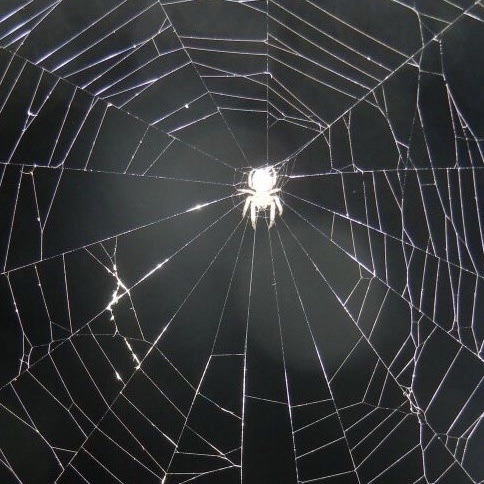

Aries 5H: You make the first move. You’re direct. You aren’t afraid to ask for their number or tell them how good they look. You don’t hint. You’ll be the one to break the ice, & others find your confidence attractive.
~ Figures w an Aries 5H: Justin Bieber, Kim Kardashian, Adriana Lima, Jhene Aiko, + Hailey Bieber
Taurus 5H: You make them swoon over you. You use your looks + material possessions to gain your crush’s attention. You cater yourself to their aesthetic a bit; you might dress in a way you know they will like. You are extra thoughtful of them, you may even buy them gifts.
~ Figures w a Taurus 5H: Kylie Jenner, FKA Twigs, Christy Turlington, Jude Law, + Rebecca Ferguson
Gemini 5H: You pique their interest. You keep them guessing & never let them become bored. You ask them questions about themselves & notice the little things about them that others don’t; ppl love your charisma + good nature.
~ Figures w a Gemini 5H: Ariana Grande, Megan Fox, Mac Miller, David Bowie, + Aaliyah
Cancer 5H: You offer them solace; they feel safe w you. You often find yourself being a place of comfort for those whom you care for. More subtle in nature, your affection comes across as warm & tender.
~ Figures w a Cancer 5H: Michael Jackson, Zayn Malik, Audrey Hepburn, Joseph Gordon-Levitt, + Alicia Keys
Leo 5H: You attract them. Having the sign of Leo in its own house, you don’t have to do much to catch your crush’s attention- however, you might introduce them to your world of music, fashion, etc. if you really like them. You’re vibrant & inviting; your smile is enough to make them melt.
~ Figures w a Leo 5H: Rihanna, Heath Ledger, Gigi Hadid, Penélope Cruz, + Kendall Jenner
Virgo 5H: You do favors for them; you remember the things they like & dislike. You observe them & make them feel seen. You may offer them advice. Others appreciate your attention to detail.
~ Figures w a Virgo 5H: Miley Cyrus, Amy Winehouse, Pete Davidson, Kristen Stewart, + Pamela Anderson
Libra 5H: You charm them. You’re surprisingly forward & you use your people skills to your advantage. You know how to make someone blush. Your mannerisms are naturally flirtatious, & when you like someone you play that up.
~ Figures w a Libra 5H: Cher, Lindsey Lohan, Drew Barrymore, Jack Harlow, + Charli XCX
Scorpio 5H: You seduce them. Your eyes are very sultry, & you know how to use them; you make direct eye contact. You may run a hand thru your hair or draw attention to your lips when you know they’re looking. Others associate you w having a naturally sexy presence.
~ Figures w a Scorpio 5H: Angelina Jolie, Kanye West, Lisa Bonet, Sharon Tate, + Abel Tesfaye
Sagittarius 5H: You have fun w it. You like to tease them; joke around a bit & make them nervous. Unpredictability is key, which means you’re good at surprises. You love to keep them on their toes & wanting more. Ppl admire your lust for life + spontaneity.
~ Figures w a Sagittarius 5H: Alexa Demie, Drake, Selena Gomez, Brittany Murphy, + Audrey Plaza
Capricorn 5H: You make an effort. More traditional, you’ll put in the work to show them you like them. You’ll ask them out. Direct, but not pushy. When you like someone, you don’t mind paying the tab. Your “old fashioned” dating style is a breath of fresh air for many.
~ Figures w a Capricorn 5H: Timothée Chalamet, Bella Hadid, Keanu Reeves, Kurt Cobain, + Christina Ricci
Aquarius 5H: You make yourself accessible to them. Not usually the one to initiate, you try to make it easier for them to make a move. You will add them on all your socials, respond to their texts; you might like to talk to them over the phone a lot. They’ll catch the hint.
~ Figures w a Aquarius 5H: Beyoncé, Leonardo DiCaprio, Denzel Washington, Gia Carangi, + Idris Elba
Pisces 5H: You romanticize them. You take them as they are & see them thru caring eyes. You are gentle w them; you point out all the things you like about them & compliment them often. Ppl cherish your softness.
~ Figures w a Pisces 5H: Lana Del Rey, Frank Ocean, River Phoenix, Doja Cat, + Natalie Portman
2K notes
·
View notes
Text
instagram
Scrumdiddlyumptious, indeed ✨🍬💜🎩🤎🍫✨
#timothée chalamet#vanity fair#wonka 2023#wonka movie#wonka review#scrumdiddlyumptious#niki liked#the universe winks#Instagram
17 notes
·
View notes
Text
Wonka Review
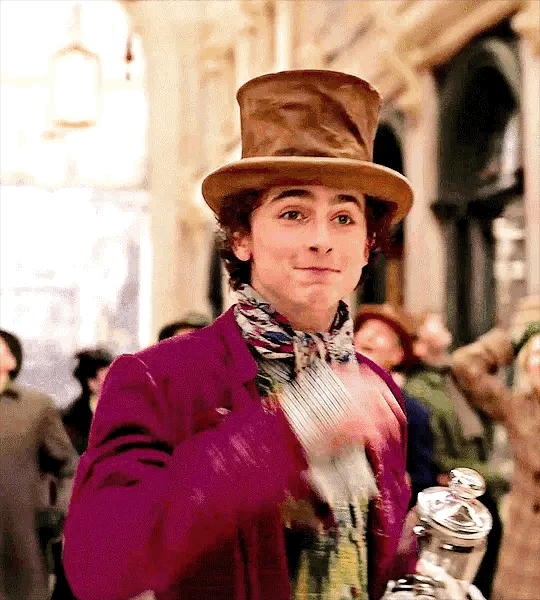
“Come with me, and you’ll see, a world filled with pure….” PG rated fun wrapped in a great Timothee Chalamet performance and smothered in a cartoony screenplay. Welcome to the world of Paul King’s Wonka.
Based on the iconic Roald Dahl character, Wonka follows the inventor/magician/chocolate maker, Willy Wonka (Timothee Chalamet) in his early years as he arrives at the Candy capital of the world to make the world’s greatest chocolate against the wishes of the vicious candy cartel (Matt Lucas, Paterson Joseph, and Mathew Baynton).
With a simple premise, director Paul King and co-writer Simon Farnaby crafts a scrump-dilly-umptious world that feels like the pages of a Roald Dahl book have been ripped from the spine and plastered on the silver screen.
This movie could have taken itself too seriously especially given the seriousness of Wonka’s back story but instead, the writers recognize what made Willy and The Chocolate Factory (and really, all famous Roald Dahl movie adaptations) so great and so beloved: their family friendly tone and cartoony story that feel like an Saturday morning cartoon brought to life. In this regard, Wonka succeeds with flying colors.
The movie does have a lot of heart to compliment all the goofiness thanks to the man in the chocolate-brown top hat: Timothee Chalamet as Willy Wonka. Chalamet gives an inspired performance worthy of his recent golden globe nomination. He makes young Willy optimistic, kind, charming, and an underdog you love to root for. He also carries the emotional backbone of this movie as Chalamet’s Wonka tells his emotional back story bit by bit culminating in an ending that will leave children and their parents in tears.
If I had to make one complaint against Chalamet in Wonka, it’s that the actor is not a very good singer and unfortunately, this movie is a musical and almost every song is done by Willy Wonka. His mediocre singing hurts the musical element of this movie significantly, luckily this film doesn’t rely too heavily on the songs and music to lift the story up. It’s able to stand without the musical numbers (which begs the question why this movie was made into a musical in the first place?). At least Chalamet gave a great musical rendition of “Pure Imagination”, I’ll give him that.
Also special shout out to Hugh Grant as Lofty The Oompa Loompa. He absolutely killed it with his voice over and motion capture performance. The CGI for the Oompa Loompa was surprisingly better than what we saw in the trailers and it really worked to bring the Oompa Loompa to life unlike previous iterations of the character. They even made Laurie’s character 8 inches tall like in Roald Dahl’s Charlie in the Chocolate Factory!
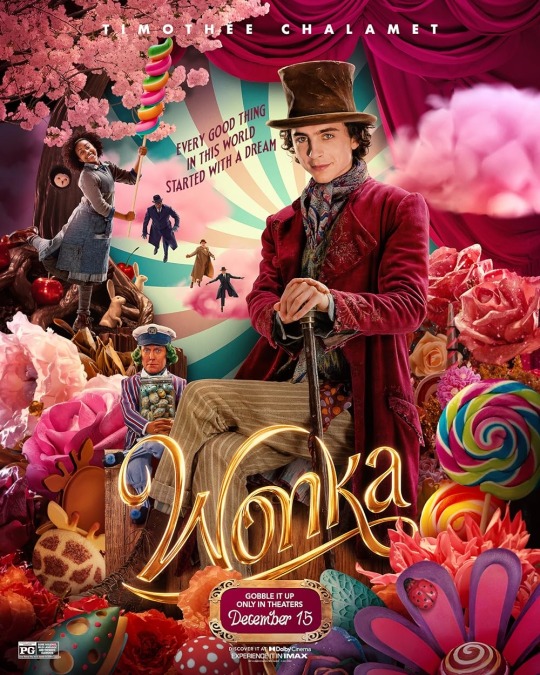
Wonka is far from movie of the year but it is a visual delight as sweet and gooey as Roald Dahl’s wacky writing and as fun as a Disney Afternoon animated show. It also has enough heart to warm older and younger audiences alike. The musical element was not necessary in this film but at least Gene Wilder would be proud of this attempt to reinvent his iconic character.
7.5/10 Stars: Good
#wonka#wonka 2023#movie review#movies#willy wonka#timothée chalamet#charlie and the chocolate factory#golden ticket#musicals#paul king#movie poster#moviegifs
2 notes
·
View notes
Text
TIMOTHÉE CHALAMET’S WONKA Prequel is surprisingly “Scrumdiddlyumptious” according to Vanity Fair Magazine.
1 note
·
View note
Text
trusting you; trusting me. (t.c.)
dating in the workplace may be tough, but your new hopeless romantic of an assistant makes it worthwhile.
(coworker au, boss x assistant au)
chapters: one, two
words: 2500
warnings: mentions of nsfw (none in this chapter unfortunately, but def in the next !!)
a/n: long time no post !! i wrote this such a long time ago and it’s collecting dust so i might as well post without worrying too much about how it will do, right? lol, hopefully i can get to writing more !!
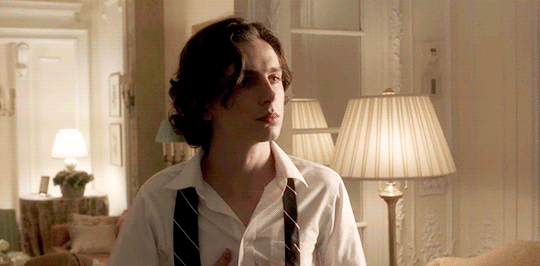
Keeping a poker face is easy until the new employee transferring into your department was the guy you’d just spent the night with.
You keep your expression contained as you make a beeline towards your office. This wasn’t the plan. The plan was for you to let off some steam with some good looking guy at the bar and then leave without a trace the morning after. He was nice. Style, charisma, and a boyish charm all wrapped in one handsome package. Just your type.
And you believe that you’d caught his fancy as well. He slipped his number written down on a napkin that sat wedged into your car’s sun blocker. (You’ve been pondering on whether or not you should shoot him a message all morning).
But as much as you enjoyed his company, he wasn’t supposed to be following you around.
‘I’m going crazy,’ You’re quick to frantically grab the file placed on your desk earlier this morning. Surely enough, Timothée Chalamet would be starting as your new assistant.
/////
“Fancy seeing you here,” is how Timothée greets you when you let him into your office. You bite your cheek as you frown at his words.
“Stop addressing me so casually. I’m your superior.” You lean back in your chair and offer Timothée a seat in front of your desk. His lips press into a straight line as he responds with a curt nod before eventually sitting down in front of you.
The atmosphere was heavy but you find yourself feeling somewhat relieved upon seeing the uneasiness in Timothée’s expression. It seemed like he wasn’t expecting an early reunion either.
“Let me get straight to the point,” you start, leaning forward and clasping your hands together as you rest your elbows on your desk. You see Timothée’s body visibly tense up.
“We’ll be spending a lot of time together from here on out. In regards to what happened last night, we can’t let it affect our practice here. While we’re in this building, we’re coworkers first. Got it?” Timothée nods in a silent agreement, and you try your best to not drown in how uncomfortable you had to make the situation for the both of you. It was protocol for situations like these, but you hated the thought of being professional to the man who sweet-talked you for the duration of all of last night.
“That’s all. I know it’s a lot for your first day, but try your best. Most of our coworkers are all great people so hopefully they can help you adjust. If you need anything, just ask.” You end the conversation with a send-off you once read in a self-help book about excelling in management. It was just a standard between a manager and a worker; hopefully a standard the both of you will be able to upkeep.
You eventually stand up and extend your hand to give your new assistant a handshake. He stands with you and clasps your hand firmly.
‘He has a good handshake…’ You think about how odd it was that you held this very hand last night. It was cold and fragile yet still big and protective when he held you. He had long fingers and surprisingly soft skin; his hands were noticeably beautiful. You told him so as you dozed off in the wee hours of the morning.
Your touch lingers a few seconds longer than it should before you let go.
“Thank you.” Timothée breathes a sigh of relief as he bids you farewell and you let yourself fall back into your chair after he closed the door behind him.
/////
You were always the last to leave, especially on a weekend. Even a few years ago when you were stationed at the cubicle in the back of the office, one row of fluorescent lights would stay illuminating your space.
You were a hard worker with big plans. Everyone in your relatively new branch was around your age so you were well liked, admired, respected, or at least acknowledged by your coworkers by the time you eventually got promoted to a managerial position. The youngest manager in the company. You deserved it, and you would make sure that you’d aim higher. Nothing would come between you and your performance.
Well, maybe nothing but the new assistant you accidentally slept with a week ago.
“Can I talk to you?” You jump at the sound of Timothée’s voice. He looked up at you as he sat on the couch outside your office with his suit jacket slung over his shoulder and his briefcase resting beside him. Your hands grasp the door frame as you check the clock on your office wall. He’d been waiting for the last two hours for you to come out.
“Of course! You could have just knocked at 5:00–“
“It... isn’t about work.”
By the time you turned back to him he’d stood up. He fidgeted with his hands, putting them halfway into his pockets before eventually folding them in front of his body. You think of all the possibilities that would play out if you said yes and you consider telling him to wait until Monday when you’d see each other at work again. In a professional setting. You knew along the lines of what he was about to ask, and now wasn’t the time to get caught up in your emotions. Not when you’d only been promoted two years ago.
But for some reason, something pulls at your heartstrings as you observe Timothée’s demeanour. He seemed so… innocent as he tried his best to be patient while he waited for a response.
You sigh and step outside your office, closing the door behind you. You stood still for a moment before caving.
“Have you eaten yet?”
When his face lights up, you realize that your new assistant may have you wrapped around his little finger.
/////
You don’t know why you chose to come to Denny’s to have this conversation with Timothée, but it somehow felt right. Eating mediocre breakfast foods drowned in maple syrup helped to mask the fact that the two of you being together like this was, well, wrong.
“Are you adjusting well?” You break the silence. Well, silence other than the sounds of forks and knives clanking against each other. Timothée swallows a ball of nervousness down with his chocolate chip pancakes and nods.
“You’re right, everyone at our branch is really nice.” He smiles politely and it makes you feel uncomfortable. He seemed so free spirited when you first met him, but that was when you were just a person at a bar. Not his boss.
“That’s good.” You smile back. It’s not like you weren’t guilty either; he wasn’t just a charming boy approaching you with a cheesy one liner anymore. He was your employee.The two of you sit in each other’s silence for a moment longer.
“Thanks again,” He starts. Your eyes avert to his.
“For what?”
“You’re not treating me any differently even though it must have been hard to stay professional for a whole week. You even let me keep my job.”
“You thought I was going to fire you?” You ask, somewhat in disbelief. The more you think about it, firing him would make sense if you were heartless. He nods casually. “I was 100% positive when you called me into your office Monday morning.”
You try not to express your concern towards Timothée’s confession. It wasn’t your fault you accidentally slept with your new assistant but it obviously wasn’t his either. As long as you stayed professional during work hours, what was the problem? It’s not like he wouldn’t be able to redirect your calls or organize your schedule. The last thing you’d want was for him to feel uncomfortable towards you; he was your employee after all.
Yeah… your employee.
You wonder if that’s why you take the extra liberty of comforting him, and before you know it words of consolation becomes friendly conversation. It’s alright if you spend the next two or three hours chatting about nothing and everything at the same time … you weren’t at work, after all. There was no need to be so stiff around each other.
“We should get going,” You check the time: 11:30 p.m. You should have wrapped this up hours ago. You don’t notice Timothée’s smidgen of a smile as he watches you gather your belongings. He eventually stands up to grab your trench coat off the coat hanger beside your booth. You scoff as he holds it up for you, eventually helping you slip into it before he shrugs on his own jacket.
“Together?” The monotonous waitress, who’d been taking care of you since you entered, punched a few buttons on the cash register. You noticed that she’d let her hair down and put on a sweater as you walk up to the counter to pay for your meal. She must be getting ready to go home as well.
“Actually–“
“Yes, please.” Timothée cuts you off by giving his card to the waitress, effectively stopping you from rummaging through your purse.
“What are you doing?” You whisper, watching Timothée’s face as he punches his card combination into the machine. He only smiles when he hears the beep of an approved transaction, and thanks the waitress before finally turning towards you.
“You paid last time.” He shrugs. You feel your heart flutter as he reminded you of the weekend you spent with him.
‘Oh no,’ You think, following him out into the parking lot and back to your car. This wasn’t going to lead to where you thought it was going to, would it…? He joined you for dinner, he listened to your mindless conversation, he helped you with your jacket, he paid for your food…
Well, it was fun while it lasted.
“Timothée,” As the two of you walked out onto the parking lot, he’d just opened the car door when you called his name. He stares up at you with a grin, his hand still resting on top of the car door. You swallow your nervousness. “what did you really want to talk about?”
The subtlety of Timothée’s faltering grin is hard to catch. He was well aware of it too, how tonight didn’t feel like a simple get together between two professionals… actually, it felt quite the opposite. Almost like a date.
“I like you.” He says, completely serious. You bite your cheek. “A lot.”
“We’re coworkers.”
“Can we not be more than just coworkers?”
You frown at his question. Maybe it was because he was young, but Timothée’s aggressiveness and passion makes your heart squeeze in your chest. You wanted to ask that question too, why couldn’t you be anything more?
“I’ve only known you for a week. I see you every weekday because I’m your boss. It’d be too much for us,” You start, finally stepping into your car and slamming the door shut. Timothée follows, and you keep on chewing at your cheek. You shouldn’t be so defensive; you had to stay professional. “at least not while we’re so young.”
“But we’ve got our whole life ahead of us, shouldn’t we at least try? We’re at the age where we can’t just waste our chances while they’re running out.” You let out a scoff at his words as you start the car, but you don’t say anything in response. You didn’t want him to know that his words resonated deeper within you that they should have.
You start the drive to his house in silence, and Timothée sighs as he lets his back collide with the seat of your car in frustration. Your relationship as coworkers was not coming to a very good start, but you suppose that it had to start somewhere. Plus if he was looking for a relationship with someone, there were plenty of great looking people at the office. He’d get over it and so would you.
“We’re here.” You say, pulling in the parking lot next to Timothée’s apartment building. Timothée turns to you one last time, and with a sigh, unbuckles his seatbelt.
“Thank you for the ride.” You nod and keep your eyes glued to your steering wheel, waiting for him to leave. You don’t see his gaze avert to your eyes, then to your lips. Timothée opens his mouth but says nothing, only pressing his lips together as he opens your car door to step out onto the pavement beneath you.
You feel yourself sigh in relief when he shuts the door. Don’t look back, you tell yourself. You wouldn’t be able to control yourself if you did. Instead you fiddle with your sun blocker to distract yourself.
Thoughts of Timothée swirled through your mind, especially what he had said before you drove him home. Don’t waste chances while they run out.
You let out a halfhearted scoff. You could only wish to think like that. To be impulsive and take chances as they arise but you can’t. Sure you were jealous, but you’ve got too much on the line… too much to risk.
You lower your sun blocker and notice a forgotten napkin slip out and onto your lap. Timothée’s number from last week. You frown.
You were just a coward.
Fuck it.
“Timothée, wait!” You call, practically jumping out of your car before running towards your assistant. You get as far as the front entrance before you see that he’d already gone inside and stepped into the elevator.
He only notices you behind the glass doors when he turns and looks up, just as the elevator doors begin to close.
“What’s wrong?” He asks, just after he stops the elevator from closing with his arm and runs towards you. He opens the door for you and you slowly walk inside, panting from your run over.
“I have to tell you something,” Timothée nods expectedly, and you rub the back of your neck.
“I really don’t think it’ll work out.” You start, watching the hopefulness in Timothée’s eyes die out. Just a bit.
“I barely know you– I liked you from when we slept together but that’s it. I was wondering where we were going to go afterwards as well, but when I saw you at the office last week, I thought I had my answer.” You step closer to him.
“But now I’m wondering… I really don’t know anymore. Maybe this isn’t going anywhere– I can’t be so sure. But when I’m looking back at the past seventy years, what’s the first week, really?” Timothée’s lips part as you look into his eyes, and you feel a warmth rising up to your cheeks. “Wanna go out?”
The corners of Timothée’s lips immediately upturn at the sound of your words, and his hand shoots up to his mouth to cover his smile. Though, you end up seeing it anyways as it travels to his eyes.
“If you’ll have me.”
#Timothee Chalamet#timothee chalamet x reader#timothee chalamet imagines#timothee chalamet fanfiction#timothee x you#timothee chalamet x you#timothee imagine#timothee fanfic
207 notes
·
View notes
Note
l know you don't want to talk about PR, but if you were managing Timmy's PR , how would be your way to do it ? Cause tbh his team his horrible about it.
Hey there! I love this "I know that you don't want to talk about this, but let's ignore that and talk about it anyway" vibe you're giving here, Nonny 😁 (Don't worry, I'm kidding. I don't mind at all 😉)
It's not that I don't want to talk about PR. I love talking about PR in general ways. I've always been interested in marketing, public images, public relation strategy, etc. It's just that, I now try to avoid talking about Timmy's because I realized it kills the conversation pretty quickly. I was trying to talk about things, marketing concepts that are well known and studied and used (I was going to say by every business, but now it's literally everyfuckingbody with social media including your own mom) and yet, the moment I start talking about Timmy's one and how Timmy seemed to be slightly shifting his image at this or that moment, why and how he could need this or that right now, the majority of what I get in return in my inbox is "you keep saying he's lying all the time and fake, why are you still pretending to love him" or "hahahaha totally agree with you, he's a slut for fame and a fake guy, let's roast him together" and I'm just "why do I even bother writing something if nobody is going to read it anyway?" (because I like reading myself write, that's why I bother 😬). It makes me want to scream at someone's, or like at said before, multiple someones. Then I remember it's the Internet and you never know when you're talking to an innocent 13 yo so, it's ok. (If you're 13 yo and love Timmy, you're right. I'm the liar, he has never lied or do something he didn't like just for work, never fart in his entire life. He's the prince charming, keep dreaming. Everything is good. We'll talk again in 10 years.)
Surprisingly enough, I don't get as many passionate reaction about pr when Timmy's name isn't mentioned anywhere, so I rather do that now.
And also many people keep thinking or at least acting like PR only means public romance/sex life and it's a) boring b) lowkey insulting for the art of PR so I'm not usually keen to entertain the conversation.
Talking about Timmy's PR is now also frustrating because the majority of the conversations going on about him for over a year have been... so fucking dumb? I get that COVID is to blame in many ways but it would be naive to think that it's the only reason. In every situation, we're doomed to talk about what color is hair is and where he does or doesn't put his dick because that's how things are. Shallow. And I get it's not only the audience's fault and even if it was, it wouldn't be Timmy's audience's fault specifically because it's how human beings generally are, always gossiping. The guy could spend days talking about interesting stuff about himself, his artistic vision, his career, the shitty industry he's evolving in and all people would talk for a month would be "but where does he put his dick???"
And to answer your question(s), I'm pretty sure I've already talked about it in a few asks but since tumblr sucks, it'll be easier to write it again than to look for links. I apologize to those who've read it back then and still remember it.
I don't think his pr team is doing a terrible job. I think they made mistakes, like everybody but they're far from being terrible. Just because you (or I) don't like what we see at this or that point, doens't mean they're terrible. When you have a client who's career looks like Timmy's, who's global image's looks like Timmy's, whose everybody used any excuse to talk about, to be seen with just to be associated with his image because he does has a good image, you can't say his pr team is doing a terrible job. A few hundreds of people on Tumblr or a few thousand on Reedit or Twitter or wherever saying it's terrible doesn't make it terrible. Like I've said before, talent and personality can only make you go so far. The world is full of talented people with sweet personalities. It isn't full of Timothée Chalamets.
That being said, there are three answers to your question.
I could do my PR job according to my personal taste, but then I would be a terrible job as a PR for him. Like if I was listening to me, I would shut his twitter and his instagram accounts for example. But it would be a bad thing to do at the moment. Maybe there will be a window to do that in a few years, but right now it would be tricky. I consume a lot of live content these (and always talking about Twitch, i know) so I maybe it's something I'd like to do that but Timmy would not be very good at it. For him to be, it would entirely re-shaped what it means to be an Hollywood actor so, so kind of time consuming for an unknown and uncertain result.
So yeah, a lot of what I like wouldn't be very fitted with what Timmy is or needs at the moment soooo, maybe I'd be the terrible PR person.
I could do my PR job for him as a human being and I wouldn't change much to what's happening, to be honest.
I could do my PR job for him as an actor who's leading actor on a sci-fi Warner Bros franchise and a big public person and maybe I'd do exactly the same as they are doing right now.
The only important thing I'd do (and hope he has people to do that for him right now) is trying to protect him. There are way to many example of famous people who have been teenagers idols, walking wet dreams for young adults, global superstar when they were teenagers or young adults themselves who come back at thirty saying how difficult it was. How at first it was a dream come true and so cool but that it too quickly turned into a living nightmare. And you probably can't protect these people that much trom constant attention from millions of people, but I think I'd still try. Nobody deserves to be suffering from depression (if not worse or more) by the age of 25 just because their childhood dream happened to become their daily job.
Should I still apologize for the length of my answers or does everybody is used to by rambling by now?
Anyway, thank you for the question, Nonny. Have a nice day 😘
18 notes
·
View notes
Link
Timothée Chalamet continues his Hollywood domination with a leading role in The King, a Netflix Original adaptation of several plays from William Shakespeare's Henriad. While the historical epic genre was once the industry's bread and butter, with the likes of Braveheart and Gladiator swooping up Best Picture gold in their respective years, they appear to be a fading from cinema. Can David Michôd's moody effort revive a dying genre?
When Hal ascends the British Throne upon his father's death in 1413, he inherits a kingdom of war and chaos. Despite his reluctance to rule, Henry V is forced to navigate a political minefield that leads him to the famous Battle of Agincourt. With Chalamet starring as the titular ruler, The King's ensemble is rounded out by Joel Edgerton, Sean Harris, Robert Pattinson, Ben Mendelsohn and Lily-Rose Depp.
Intelligent and surprisingly contemporary, The King's Shakespearean influence are embraced but it mostly looks to our times to deliver a piece with both meaning and relevance for modern audiences. It would be foolish, given the political climate brewing in almost every corner of our world, not to recognise the jostle for power, dangerous treachery and political unsteadiness that Joel Egerton and David Michôd have embedded within their script. It takes on a slower pace as it documents Henry V's rise and his attempts to change the world he has inherited, but once those wonky first 20 minutes are out of the way, it's difficult not to be gripped until the close of this slow-burning yet sharply-pointed and engaging feature-length.
With the quieter intimacy of the character arcs contrasted well by the scale of the production, Michôd's visceral and immersive direction instils The King with a brooding energy that Nicholas Britell's atmospheric score serves very well. Particularly when the film reaches its Agincourt pièce de résistance, a technically skilled and heart-racing final act that rivals some of the best screen battles of recent years, the film's darkly grim execution powers the film to great heights in its concluding stretch. With Michôd's direction enriched by solid production design across the board, captured by Adam Arkapaw's strong cinematography, it's a crying shame that most audiences won't get to experience this impressive feat on the big screen.
A lot of the success is down to Timothee Chalamet, who is rather magnificent in his first real period role. His boyish charm serves the character superbly, with a quiet complexity building towards a thoroughly earned, chest-clutching speech before the film's big battle that cements Chalamet's brilliance for anyone foolish enough to still doubt his talent. Chalamet's characterful supporting cast featuring Egerton and Ben Mendelsohn (alongside Robert Pattinson, whose accent could not be more french if it were dressed in a garlic garland and singing La Marseillaise) are serviceable, but Chalamet towers above them all, registering one of the year's most captivating performances worthy of all the recognition in the land.
It's not a particularly daring genre interpretation, but The King's thoughtful script smartly recalibrates a centuries-old tale by viewing it through a contemporary lens that results in a historical epic with biting relevancy. A number of well-executed elements across the board support Michôd's viscerally-charged genre effort, but it is Timothée Chalamet's excellent lead performance - easily one of the year's best - that ensure Netflix's latest is a crowing achievement. Long live The King.
8/10
Summary: All hail, Timothee Chalamet! It isn't until his King Henry rises to the regal titular position that The King finds its footing - but as soon as the crown is secured, David Michôd's visceral and brooding film reigns supreme.
20 notes
·
View notes
Text
Little Women
Little Women is a 2019 drama film directed by Greta Gerwig. It stars Saoirse Ronan, Florence Pugh and Emma Watson. The film is about a group of sisters who go through different phases of maturation as the years go by.
Greta Gerwig’s first directorial effort, Lady Bird, was an acclaimed indie success story. I thought it was a good film, but not necessarily a great one. I didn’t find it as endearing as everyone else did due to the main character being a little too unlikable for me. However, here we are with her second effort in Little Women. It’s very interesting how she took on an adaptation period piece as her sophomore project. So, is Little Women any good? I definitely say it is. I think it’s a very, very good film in fact. Little Women is a fantastic sophomore effort from Greta Gerwig. The writing is absolutely fantastic. The cast also perform in their respective roles almost perfectly, with Saoirse Ronan and Florence Pugh being the standouts. Thanks to great cinematography and sheer star power, this film is surprisingly unique from other inferior period pieces.
Let’s begin with the positives.
Firstly, performances. I thought everyone played their part perfectly. Laura Dern and Emma Watson are good. Meryl Streep is having the time of her life playing the antagonist, and Timothee Chalamet is charming. However, Florence Pugh and Saoirse Ronan are the two standout performers here. They conflict eachother perfectly and they are easily the two most endearing characters in this film.
Also, writing. Gerwig’s direction at times is overrated, but I genuinely never questioned her writing. Her writing is almost always perfect and there is a good sense of wit and emotion to her scripts. This film is no different. The way the characters played off one another thanks to her dialogue ensures that this film is definitely unique.
However, I do have a few issues with the film.
Mainly, character choices. This isn’t as much a dig at Gerwig due to the fact that it was already in the source material. The characters of Jo and Amy say a lot of things throughout the film to imply they strongly agree/disagree about something, but by the end of the film you just see them going back on it almost in an instant. Kind of disappointing in a film about strong women.
To conclude, despite some issues with certain character choices, I was nonetheless thoroughly entertained and impressed by Little Women. The costumes are great, the cinematography is beautiful, the writing is wonderful and the performances are impressive. This is easily one of the better films of the 2020 Awards Season. Little Women receives an 8.1/10.
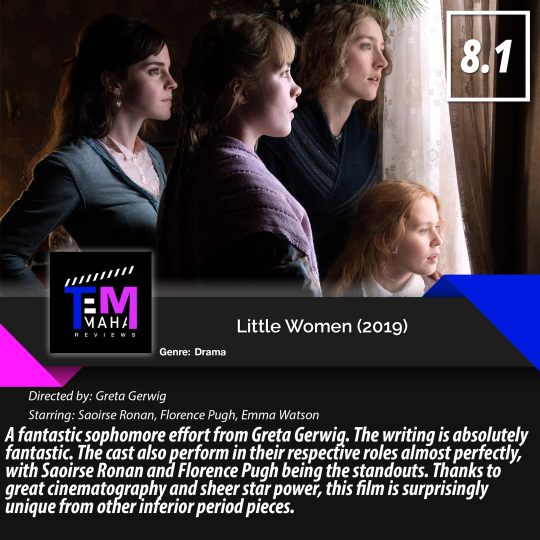
#Little Women#movie#movies#film#films#film review#film reviews#film critic#2019#2020#oscars#academy award nominations#academy awards#oscars 2020#92nd oscars#92nd academy awards#saiorse ronan#timothee chalamet#greta gerwig#emma watson#florence pugh#laura dern#meryl streep#movie review#movie reviews
4 notes
·
View notes
Text
Little Women: ****1/2 out of 5
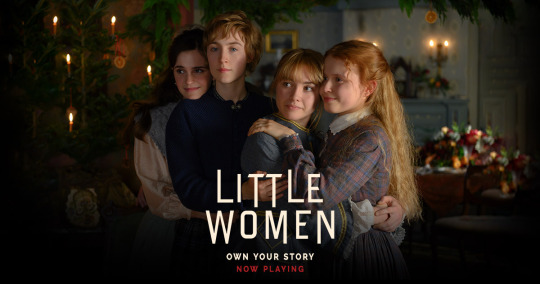
Period pieces have gained a reputation (unfairly) for being stuffy, slow, pretentious work meant for people of a certain age. The new movie, Little Women, which is actually the seventh adaptation of Louisa May Alcott’s iconic 1868 novel of the same name, may seem like that on the surface, from its 19th century setting to its reputation as a ‘literary classic’ to the abundance of petticoats and candlelight.
But it also has the prodigious Greta Gerwig as its writer and director and just as she crafted Lady Bird into a surprisingly light and sensible dramedy from what could’ve been weighed down by angsty navel-gazing, she does so once again with her latest feature. Like many period pieces, it will garner its nominations, but not because of the stereotypes that come with the genre.
Gerwig, a skilled actor before getting behind the camera, is a filmmaker of impressive economy. Like her work on Lady Bird, she keeps scenes brisk and to the point with decisive cuts. The dialogue is snappy and natural sounding, infused with her distinct brand of levity. She retains the syntax of 19th century English but makes the characters feel like humans instead of artifacts.
She also deviates from the source material with a non-linear approach, beginning the story with the March sisters already grown up and facing the challenges of being young women in 1868. The first scene establishes this perfectly. We’re introduced to Josephine ‘Jo’ March (Saoirse Ronan, possibly our greatest sub-30 actress), the second oldest of four sisters, now a teacher in New York who’s come to see an editor to get a story published. The editor, played by the reliable Tracy Letts, entertains her request, sure, but demands considerable edits and insists the story be ‘short and spicy. And if the main character’s a girl, make sure she’s married by the end. Or dead, either way.’
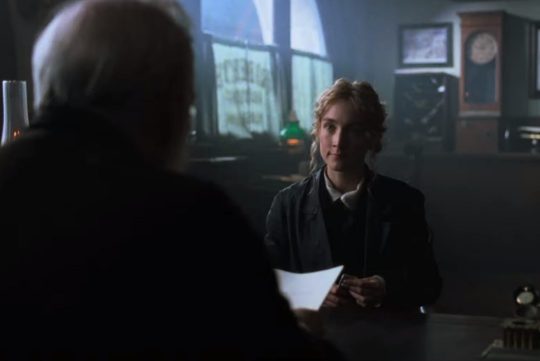
No doubt Gerwig is a progressive who’s invested deeply in the struggles of women, but her work isn’t so heavy-handed; she relies more on smart, witty exchanges like the one above to deliver her message in place of maudlin speeches that use guilt as a weapon for change. Ultimately, she’s interested in telling a story about dynamic characters rather than giving a sermon.
These characters, fortunately, are freed from the burden of sainthood and allowed to be normal yet complicated individuals. Jo is independent, artistic and somewhat of a revolutionary, but also, she can be stubborn and inconsiderate. Amy, the youngest sister played by this year’s breakout star Florence Pugh, is prone to tantrums and her sibling rivalry with Jo even leads her to burn one of Jo’s manuscripts. You don’t condone the behaviour, but you can’t hate the girl either; she’s the painter in the family whose artistic tenacity and astute awareness of her social and legal constraints are too respectable to ignore. At the start of the film, she’s in Paris with her wealthy and demanding aunt (Meryl Streep, always perfection) who constantly implores the girls to know their place and marry rich.
Margaret or Meg (Emma Watson), the eldest sister, ignores her and marries a man of little means. However, she also ignores Jo who’s averse to the very idea of marriage. Meg’s gift is acting, but, unlike the other sisters, her focus shifts drastically from art to family, a detail that Gerwig treats with equal respect. She’s the most level-headed and diplomatic of the bunch. And then there’s Elizabeth, played by Eliza Scanlen, who’s the least famous of the four actresses, but considering her work on HBO’s Sharp Objects, that should even out soon. Her character, the pianist, is also the least developed and more of a plot device than the other sisters.
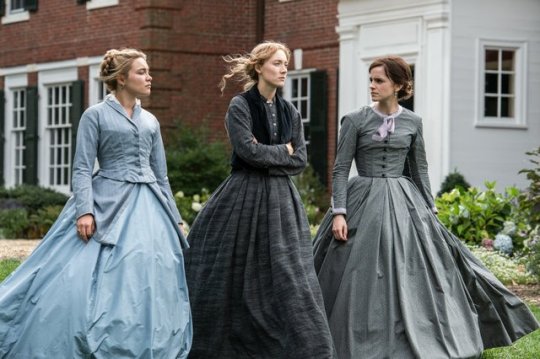
Their present-day stories are put on hold as we’re whisked back to 1861 when they were littler women living together with their mother, Marmee (Laura Dern, marvelous), in Concord, Massachusetts. These time shifts are constant and admittedly disorienting at first, but they also encourage our deeper focus and investment. And if you comply, you’ll notice the contrasting colour palettes used to distinguish past from present, the past bathed in reds and oranges to reflect warmth, family, security, hope. The drab blues and greys of the present suggest a more somber and lonely time for the girls when the struggles of adulthood creep in. But, Gerwig and cinematographer Yorick Le Saux are too shrewd in their art to impose a strict ‘happy vs sad’ comparison; the colours are used to enrich the tones, not polarize them.
It’s simply a joy to watch these sisters interact with one another and experience the ups and downs of life, a lower class one with a father (Bob Odenkirk) off fighting in the Civil War. Though it’s been established that no one here is perfect, Marmee certainly comes close. You’d be hard-pressed to find a kinder, gentler soul in film; she even convinces her apprehensive daughters to give their Christmas breakfast to their poor neighbours. Dern has the uncanny ability to play vain, callous individuals in some projects (Big Little Lies, Marriage Story) only to transform into angelic figures in others (Wild). She’s obviously the latter here and it brings the family and the audience great comfort.
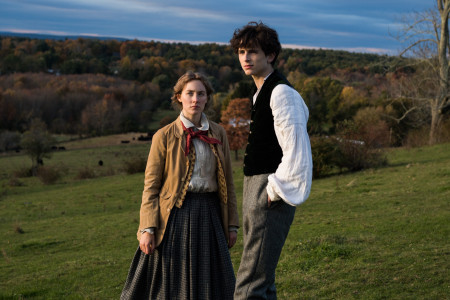
It also brings great karma as their wealthy neighbour, Mr. Laurence (Chris Cooper), leaves the Marsh clan a Christmas breakfast to replace the other one. And Mr. Laurence’s son Theodore, or ‘Laurie’, provides pain and joy, complication and clarity. Played by Timothee Chalamet (Ronin’s counterpart in that sub-30 category), he’s a huge part of their collective lives and emotional development. Like most of the others, he’s by turns utterly charming and frustrating but never unappealing.
And, so, we continue to watch these little women learn, struggle, make mistakes and grow as the past is juxtaposed with the present and the characters strive for some form of freedom. Certain characters think they know what that is and try to force their beliefs on others, soon to realize that what you choose to do with your life is irrelevant; it’s having the choice itself that matters. Although, if you pass on Little Women, you’ve almost certainly made the wrong choice.
3 notes
·
View notes
Text
LA Confidential - nice read and pictures 👌

Corduroy jacket, $2,730, and pants, $795, both at Ermenegildo Zegna; rollneck sweater, $185, by Mr P. at mrporter.com
Oh, it was such a sleepy, idyllic town until Armie Hammer came along with those chiseled charms of his. Eighteen months ago, the Italian city of Crema drew occasional visitors for its sweet ravioli and the Gothic 17th-century bell tower in the piazza. But then something positively scandalous happened involving an overripe hollowed-out peach, and Crema was anonymous no more. 😄
If you’ve seen Call Me By Your Name, you’re aware of the indelible moment in which Hammer plays erotic muse to last year’s juiciest moment in film. To sidestep spoilers, let’s just say that Timothée Chalamet, Hammer’s young costar in the coming-of-age drama, discovered a fruit-forward way of quenching his desire for Hammer’s character. Heaps of award nominations (including a Golden Globe nod for Hammer’s performance) and a global invasion of drosophilalike movie tourists followed.
“I went back to Crema after Call Me By Your Name had already come out, and walked into the duomo, which had been so calm and lovely when we filmed,” Hammer, 32, says, shaking his head a little in the courtyard of a Hollywood hotel. At 6 feet, 5 inches with bright blue eyes and a polished smile, the movie star in the conversation is impossible to mistake for someone else. “A few girls were standing together looking at their phones, and one of them looked up at me and just went, ‘Holly f---! There he is!’ And I thought, That’s it. Everything’s different here now.”

Donegal cableknit sweater, $595, paulsmith.com
You could say that about Hammer too. The actor noticed a change at the Oscars last year. The first time he attended, in 2011, to support The Social Network (through the magic of split screens, Hammer played both of the Winklevoss twins, who claimed the Facebook idea was theirs), he felt lost in the blur. “You’re on the red carpet looking around at all the insanity going, ‘What the hell?’” he says. “It was like being in a car accident.” But last year, the experience was one to savor. “I walked into a situation where suddenly I’d done a lot of work with a bunch of different people, and it was all, ‘Hey, how are you?’ ‘Oh, wow, great to see you.’ ‘Isn’t this fantastic?’”
Hammer’s orbit continues to widen. This season, he appears opposite Felicity Jones and Justin Theroux in On the Basis of Sex, a biopic directed by Mimi Leder about the life of Supreme Court Justice Ruth Bader Ginsburg. Hammer plays Marty Ginsburg, a husband-of-the-century type who cooked and cleaned, and also argued cases alongside his wife in support of her pioneering legal career. “I talked to a lot of Marty’s law students and family members, and said, ‘Be totally honest—he couldn’t have been as great a guy as we’re making him out to be,’ and they all said, ‘You’re right. He was better.’ What the hell do you do with that as an actor?” Hammer obviously figured it out: The role is getting early Oscars buzz in the best supporting actor category.
Hammer portrays another dedicated family man in Hotel Mumbai, based on the terrorist attacks in 2008 at Taj Mahal Palace Hotel in India. It costars Dev Patel. Hammer’s character has to make a Sophie’s Choice-style decision about whether to protect his wife or the child he’s separated from. The production shot in Adelaide, Australia, shortly after Hammer wrapped on those magical months in the Italian countryside. “I went from riding a bicycle in paradise and drinking wine at lunch to getting chased down the hallway by guys with machine guns,” he says. “At a certain point, you just go, ‘Acting is a really weird job.’”

Replica leather trench, $4,980, by Maison Margiela at Barneys New York; classic T-shirt, $335, at Louis Vuitton; wool trousers, $225, by Mr P. atmrporter.com; L.U.C XPS 1860 timepiece in rose gold, $21,700, by Chopard at Neiman Marcus; Tyler lace-up boots, $318, at Frye.
On the surface, you would think Hammer could have chosen any career—or none at all—and done quite well for himself. It’s not just that he clearly won the DNA lottery; he’s good-looking enough to attract giddy triple-takes even among the blasé hipsters at the hotel. But Hammer is also—brace yourself if you haven’t heard—part of a storied dynasty. His great-grandfather was the Russian-American petroleum baron and philanthropist Armand Hammer, whose name is emblazoned upon buildings and institutions such as the Hammer Museum and Armand Hammer Golf Course in Los Angeles. This is the tycoon who traded caviar and furs with Vladimir Lenin in exchange for American wheat shipments and later bought the company that manufactures Arm & Hammer baking soda, mainly because he got a kick out of the name. Google around and you’ll see images of adorable little Armie—born Armand Douglas Hammer—on Great-grandpa’s private jet.
What’s interesting is how the family legacy shook out. Armie’s parents, Michael Armand Hammer and Dru Ann Mobley, now divorced, relocated the family to the Cayman Islands from Texas and Los Angeles when Armie was 7 and his younger brother, Viktor, was 5. Although the Hammers are mostly of Jewish descent, Armie’s parents identified as Christian evangelicals, and, while in the Caymans, founded Grace Christian Academy, which the Hammer boys attended, and the Christian Communications Association, a not-for-profit Christian radio station. When Armie announced he wanted to pursue a life in show business and left high school to follow his acting dreams, he was effectively disowned for the decision. Ironically, Hammer’s first significant role, at 22, was in a biopic of the young Billy Graham. “When I first got into this, the reaction was basically, ‘Are you out of your mind?’” Hammer says. “But when [my parents] saw how hard I was willing to work and how passionate I was, and that this wasn’t just a fad, they said, ‘OK, we get it.’”
Hammer insists he’s been independent financially since he was 19, and that’s been a prime motivator as he’s shouldered his way through hits and misses (The Lone Ranger and The Man From U.N.C.L.E. were supposed to be his megabudgeted star vehicles; they weren’t.) “I’m so thankful that from a young age, I’ve never had to take anything from anybody. You never get to take money without something attached to it, so I didn’t want those encumbrances. I wanted to live my life without anyone telling me what to do, and that’s meant everything.”
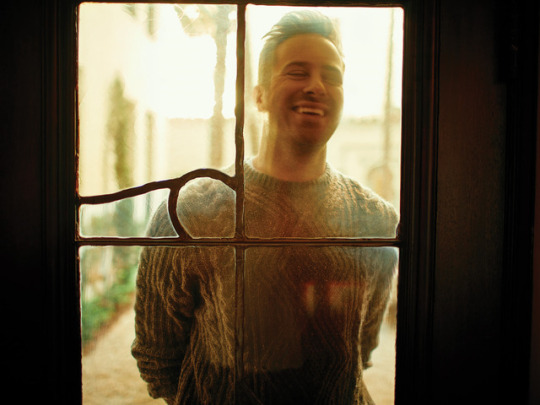
Donegal cableknit sweater, $595, paulsmith.com; crew neck T-shirt, $55, Vince.
Hammer and his wife of eight years, food TV personality Elizabeth Chambers, have a daughter, Harper, 4, and son, Ford, 2, who travel on locations with Hammer when he’s not dadding around L.A. “I do a good portion of the school runs, and I cook breakfast for everybody every morning because it’s not like I have a 9-to-5—and also, I love it,” says Hammer, who collects vintage typewriters and won’t say no to a good cupcake (the couple owns two high-end bakeries in San Antonio, where Chambers grew up, and Dallas).
In between the cooking and baking, Hammer finds time for Hollywood. This year, he appears opposite Dakota Johnson in a horror-thriller by British-Iranian director Babak Anvari. “I play an empty shell of a man who works at a dead-end job at a dive bar in New Orleans, which was surprisingly enjoyable to do,” Hammer says. He’s also starring in a remake of Rebecca, Alfred Hitchcock’s first Hollywood film, with Lily James. The film shoots in London, which, unlike that serene village in Italy from Call Me By Your Name, maybe—just maybe—can handle “the Hammer effect.”
PHOTOGRAPHY BY MIKE ROSENTHAL; STYLING BY MARK HOLMES; GROOMING BY KC FEE AT THE WALL GROUP; SHOT ON LOCATION AT VILLA CARLOTTA, LOS ANGELES
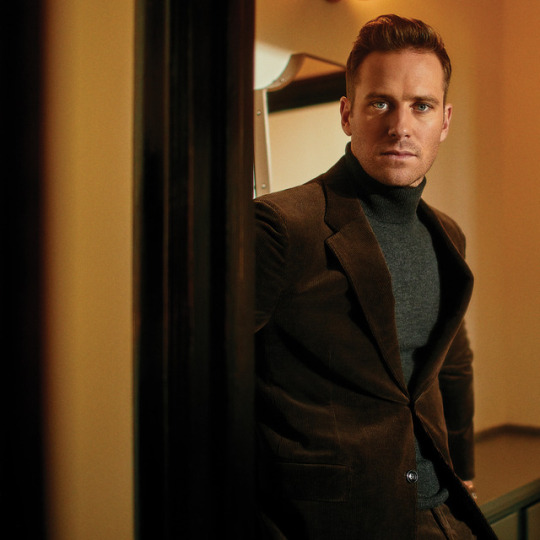
#armie hammer#cmbyn#call me by your name#on the basis of sex#onthebasisofsex#notorious rbg#rbgmovie#rbg#ruth bader ginsburg#hotel mumbai#marty ginsburg#mimi leder#martin ginsburg#justice ginsburg#otbos#sorry to bother you#straight white men#armie x felicity#timothee chalamet#luca guadagnino#cmbyn sequel#cmbyn fandom#boots riley#dakota johnson#andre aciman#oliver#crema#the man from uncle#elio x oliver#la confidential
310 notes
·
View notes
Text
The Best Films of 2018, Part III
Parts I and II are here and here.
GOOD MOVIES
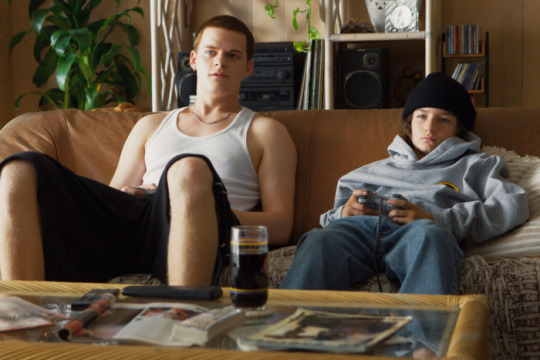
70. Mid90s (Jonah Hill)- I usually applaud filmmakers for letting visuals tell the story instead of spelling everything out, but Mid90s needs to spell some more stuff out, especially at the truncated end. His brother brought him an orange juice, so all of the abuse is forgotten? I need a bit more there.
I was always going to be in the tank for this though, having been the same age as the protagonist at the time, owning some of the same shirts as him and hanging some of the same posters on my wall. Despite the "My First Screenplay" beef I had up top, each supporting character gets something to do. Hill shows promise as a director (and the fingerprints of his influences) by being able to shift between poles of emotions in a matter of seconds.
69. McQueen (Ian Bonhote)- Although it waits too long to get into McQueen's depression, this documentary does an adequate job of showing the ups and downs of his life. It was great seeing things I've only read about, like the Voss show.
Here's the thing though: I'm not a genius, but if I were, I would hope that my closest friends and advisers would be able to articulate what made me great. A little less "We were working sixteen-hour days." A little more "He changed art forever."
68. Beautiful Boy (Felix Van Groeningen)- For better and worse, this portrait of a parent's worst nightmare is unrelenting. Surprisingly, the toughest moment is when Nic is fierce with pride, clean for fourteen months. Because when you pause and see that there's an hour left in the movie, you shudder at how low he might end up going.
Van Groeningen's sort of french braid of past and present hasn't changed for his English-language debut, but things worked best for me when he locked in on Timothee Chalamet's mannered but touching performance. I wish the movie had a proper ending.
67. The Kindergarten Teacher (Sara Colangelo)- This takes a little while to get sick and twisted, but I liked it once it did. Part of why it works is Gyllenhaal's commitment to the role. As dark as the character gets--and the film does seem hell-bent on establishing her as a failure when I'm not sure that's true--Gyllenhaal never judges her. It's probably her best performance since SherryBaby.
As for Gael Garcia Bernal, who plays a poetry professor who kisses people and then apologizes and says that he misread the moment and acts all bashful, are we sure about him? Are we sure he's good at acting?
66. The Spy Who Dumped Me (Susanna Fogel)- The spywork of the last half-hour is way too convoluted, but the comedy is fast and loose in service of a sweet female friendship. We're at the stage with the genius of Kate McKinnon in which I just assume that she came up with anything funny on the spot. For example, there's an off-hand joke that her character went to camp with Edward Snowden and was surprised that the news didn't mention how "into ska" he was. It's so bizarre that it had to be improv. Later, when Edward Snowden shows up as a character, I had to admit that the movie was tightly written. But I assumed it was McKinnon first.
65. Ready Player One (Steven Spielberg)- Halfway through Ready Player One, there's a sequence that takes place inside The Overlook Hotel of The Shining. The characters are walking through a photorealistic recreation of that setting, down to the smallest details, but it has been repurposed with different angles for this film. Not only have I literally never seen something like this in a movie, but I never imagined the possibility of such a thing existing. And somehow...it's corny and derivative.
So goes Ready Player One. It takes the simple pleasures of a Chosen One narrative with a killer villain, loads every corner of the frame with Ryu or Beetlejuice or a Goldie Wilson campaign poster, and punishes you with maximalism. Each piece reliably contributes to the whole, sometimes in thrilling and amusing fashion, but no matter when you check your watch, forty-five minutes are left.
When imdb came out, Steven Spielberg was one of the first people I looked up. What shocked me was how many projects I attributed to his direction when he had only produced them. In my kid brain, Spielberg had directed Gremlins or Goonies or An American Tail. They had his imprimatur of whimsy and wonder and childhood identification even if they were, you know, a bit more conventional and less purposeful than the movies he directed. Well, not since Tintin has there been a Steven Spielberg-directed film that feels more Spielberg-produced.
My favorite reference was the Battletoads. Or more accurately, imagining the seventy-two-year-old filmmaker going, "Oh, you know I gotta get the 'Toads up in this bih!"
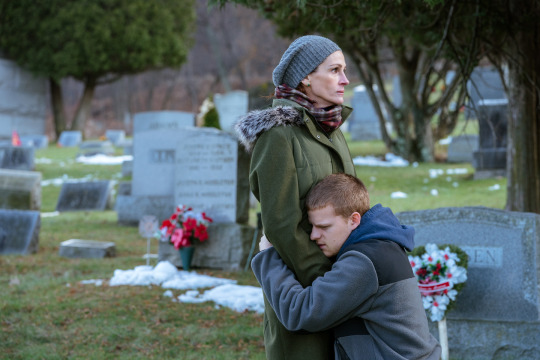
64. Ben Is Back (Peter Hedges)- Despite a little bit of note-card screenwriting--"Get a line about how insurance doesn't care about drug addiction in there!"--The first two-thirds take their time revealing information to the viewer, dropping bread crumbs of the family history quite gracefully. Roberts and Hedges play off each other well, and their charisma powers the first half. She, of course, has an ample bag of Movie Star tricks, but, surprisingly, he already does too. You can see, in the confrontation at the mall, for example, how the mother's dissembling and conniving would pass down to him.
So it's a real bummer when the final third decides to separate the leads and rushes to a baffling conclusion. It falls apart like few movies in recent memory.
63. Avengers: Infinity War (Anthony Russo, Joe Russo)- Whatever. I admire the skill that it must have taken to balance the revolving wheel of characters--even if it does feel like check-ins half the time. The movie is exhausting in a bad way until it's exhausting in a good way. More importantly, here are my power rankings. (Their power in my own heart. Thanos is obviously the most powerful.)
1. Rocket
2. Hawkeye (Renner Season even when it isn't.)
3. The Collector
4. Black Panther
5. Thanos
6. Iron Man
7. Ned
8. Nick Fury
9. Star Lord
10. Thor (His scene with Rocket is the best one in the film.)
11. Gamora
12. Hulk (Your boy is so earnest in this. "They KNEW!")
13. Spider-Man
14. Wong
15. Okoye
16. Doctor Strange (Way cooler in this than his own movie.)
17. Captain America (His hair was beautiful.)
18. Drax
19. Pepper Potts
20. Falcon
21. Groot
22. Black Widow
23. Winter Soldier
24. Loki (Is he alive? Was he alive before this? Can he impersonate people or whatever even if he's dead? What's his deal?)
25. Scarlet Witch (Her first line is, getting out of bed, "Vis, is it the stone again?")
26. Gamora's Sister (No, you look it up.)
27. War Machine (Do you think Cheadle forgets that he's in these? Like, he misses a day of shooting just because he forgot?)
28. Vision
29. Whatever Peter Dinklage Was
62. The Old Man & the Gun (David Lowery)- Sissy Spacek's character explains, on a tour of her house, that she pulled up some wallpaper and found a signature from 1881 underneath, which is so unique that--ugly as it is--she couldn't bear to cover it. The movie is sort of about that. Does a way of life from a long time ago matter now?
Does it matter how you present yourself? How much does intention cancel out action?
The questions play themselves out in a way that is formally interesting--Lowery swish-pans and advances the scenes in a way that he hasn't since Ain't Them Bodies Saints--but informally pretty dull. Redford is engaging as possible, but I feel like I maxed out on my concern for a person who refuses to change.
I've had the Sean Penn "on one" scale for a long time, but I'm introducing the "off one" scale for Casey Affleck, who is so purposefully muted that he seems like he's going to pass out in some scenes. Keep doing you, Case. As far as acting goes.
61. Disobedience (Sebastian Lelio)- I admired how little the film spelled out about the setting and the characters' pasts. The beginning is cautious without being slow, and the women seem drawn to each other with a sort of magnetism that is difficult to pull off. While the triangle of people at the center is realistic and fair, the picture is ultimately a bit staid. I don't want melodrama out of the story either, but I do think it would work better if the characters were more passionate about anything, even the religion that makes them lack passion.
60. Crazy Rich Asians (Jon M. Chu)- This movie is sweet, and it nails the rom-com fulcrum scenes that it has to. Hear me out though: Both of the leads are winning, and Henry Golding's charm keeps us from acknowledging that his character is a psycho. Here is a list of things that, over the course of a year, he does not bother to tell his girlfriend:
a. That his family is the wealthiest in Singapore. Or wealthy at all. But more notably, he tells Rachel no details at all about his family, such as his brothers' and sisters' names.
b. That he skipped an important trip home a few months ago, which caused a rift in his family.
c. How to pack or dress for their trip to visit his family.
d. That his mother did not want them sleeping together at her house, not that he "wants her all to himself."
e. That his family wants him to take over their business, which would necessitate a permanent move to Singapore.
f. That he went out with one of the women attending the bachelorette party, and that this woman has very good reason to sabotage Rachel and Nick's current relationship.
g. That the wedding they're attending is also a super-rich affair that will be covered by international media.
h. That the wedding party they're attending the night before is a formal affair with hundreds of guests, not the "family party" that he presents it as. By the way, this is one of the two times that he not only doesn't accompany her to an event, expecting her to meet him there and find him, but he doesn't even send a car.
i. That he's thinking about proposing to her. "We haven't even talked about that stuff," Rachel tells her mother.
Communication is key, Nick.
59. Lean on Pete (Andrew Haigh)- I liked the first half and its patient doling out of information. Haigh sews quite a few credible threads to show why the gruff Dell would take a liking to Charley. When the film diverges into a drifter story, I got frustrated with it. To me, drifter characters aren't interesting because they take unpredictable actions, what enliven films, and make them predictable. A dine-and-dash is a dangerous, exciting thing to happen in a movie, but when this scared kid has already done so much similar running, it dulls that edge. This is Haigh's least successful film, but it's still empathetic and sensitive.
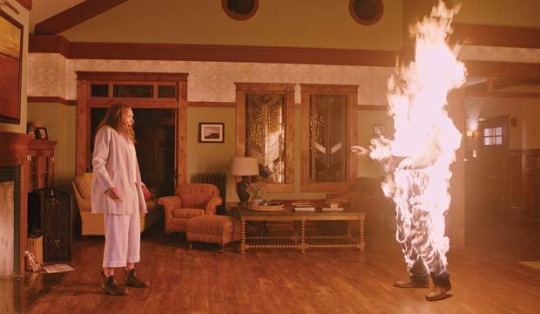
58. Hereditary (Ari Aster)- The first third of Hereditary is when it is at its most intimate and compact as a story of grief. And with the bridge of a genuinely shocking event, it becomes less Don’t Look Back and more of a hellish explainer.
Ari Aster is a master craftsman already, investing every element with intention, down to “Why are clocks so present in the frame?” That craft extends to Toni Collette, who is even better than she normally is. But in refusing to be mysterious and small, the film didn't connect with me on a level beyond admiration..
57. Gringo (Nash Edgerton)- The expository information about the company comes too late, the ending is too tidy, and I'm not sure what my girl Mandy Seyfried is doing in this. But it's funny overall, in large part because Theron and Edgerton bounce off each other beautifully, projecting a very specific brand of nouveau riche awful. She says, "Fat people are...hilarious," and he wears too many accessories in his pick-up basketball game, for which there's a running clock.
Many of these crime comedies fail because all of the characters are painted with the same cynical brush, but Oyelowo is so likable here as a frazzled guy in over his head, playing against the type of simmering dignity he inhabited as someone like Martin Luther King. I'm glad that he's getting at-bats with something this different.
56. Bad Times at the El Royale (Drew Goddard)- If you like table-setting (and I do), then this is going to be a fun time. Each room at the motel gets a two-sided mirror, each character is two-faced, many events are presented from two perspectives, and there's even a double in the title. It's hard not to share in Goddard's delight as he patiently lays out all of the Tarantinian pieces.
Once he has to start declaring things though, somewhere halfway in the meandering two and a half hours, the film doesn't end up having much to say. I'm not sure I wanted another Cabin in the Woods ending, but I did want it to add up to more than the modest pleasures that it does. Kudos to Chris Hemsworth and his dialect coach for finally piecing together a serviceable American accent.
55. Thunder Road (Jim Cummings)- As far as calling card movies go, this one is a pretty smart character study. It centers on how the things we find important, the impact of words in this case, can often be the things we struggle with the most, through dyslexia and spoonerisms and messed-up jokes in this case. That being said, no offense, the film would be 25% better with a more capable lead actor.
54. Annihilation (Alex Garland)- Much like Sunshine, another Alex Garland script, this story handles the mystery elegantly, with jolts of real horror, until we get where we're going, which doesn't live up to the promise. I do appreciate that it respects the viewer's intelligence--withholding answers to questions, sometimes never answering questions. I'm grateful that it exists.
53. BlacKkKlansman (Spike Lee)- Like Chi-Raq and Red Hook Summer, BlacKKKlansman would make for a hell of a YouTube compilation if you cut together its best moments. It's sharp and vital when it's at its best, which is pretty much any time it's commenting on the present, through "Now more than ever" Nixon campaign posters, mentions of how David Duke's policies might show up in Republican platforms, or the searing epilogue that brings back one of Lee's oldest tricks.
Like a lot of his recent work though, it's a mess tonally, and basic stuff like the timing of the cuts seems amateurish. I also think Lee's relationship with Terence Blanchard is hurting him at this point; the music doesn't match what's going on at all. I wish it hung together better than it does.
52. Widows (Steve McQueen)- This is the messiest film that Steve McQueen has made, which is its biggest strength and its biggest weakness. That loose quality allows for some expressive moves, such as when the alderman candidate takes a real-time two-minute ride from the poor area where he's campaigning to the tony area where he lives, in the same district. This is a film with admirable ambition to go with its cheap thrills.
But that same messiness produces as many bad performances (Farrell, Neeson, and, yes, Duvall) as it does good ones (Debicki, Henry, Kaluuya), and it elides so many moments near the end that I have lingering questions about whether a major plot point was even resolved. This is definitely the type of movie that has a three-hour cut that is better, and I still hope that director's cut doesn't waste five scenes on Debicki's prostitute relationship with Lukas Haas. (Where is his sliver of a face on the poster?)
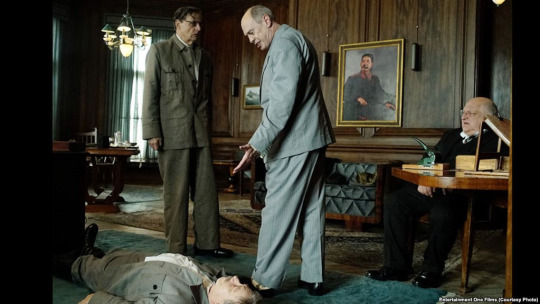
51. The Death of Stalin (Armando Iannucci)- I feel as if I have to adjust to the astringency of any Iannucci property, and when I do, I laugh a lot. This movie is hilarious, and I'll save you from a list of the jokes that work the best.
Iannucci and his collaborators take one of the most violent, tyrannical periods of history and expose its perpetrators as sniveling, feckless children who might accidentally spit in their own faces as they're trying to spit on someone else's. Destabilizing those in power--in this case de-memorializing them--and portraying them as lost, scared humans is the goal of satire. So even though he does it so well, part of me wonders, "Is that it?" Bureaucracy is dumb? Isn't this an easy target? For what it's worth, I felt the same way about In the Loop, despite everyone else's praise. I'm waiting for Iannucci to find a weapon sharper than the middle finger.
50. Tully (Jason Reitman)- In a way, it's refreshing for a screenwriter to be bad at writing men. The outdated, clueless, manchild dad is the biggest weakness of the script, especially since everything else is pitched with such realism. There's also one scene that I hate but probably shouldn't spoil.
Put aside that character though, and this is a movie with wit, verisimilitude, and even a bit of visual agility. The protagonist--Marlo, a Diablo Cody name if there ever was one--has a special needs son, and I appreciated the honest way that Marlo's frustration with him sometimes outweighed her understanding.
49. Fahrenheit 11/9 (Michael Moore)- Fahrenheit 11/9 is diffuse, but it's effective enough to be in the top half of Moore's work. He stays out of it mostly (besides that familiar narration, as gentle as it is ashamed), but his heart is clearly in the searing Flint section. In fact, I wish he had made a documentary that focused only on that American travesty, not all of them.
He has the same challenge that many of us do--pointing out the crimes and perversions of Trump while keeping the high ground--and he doesn't always avoid the low-hanging fruit. Dubbing Trump's voice over Hitler's is the type of shit that people hate him for. At most turns, however, Moore's choices make sense. A long diversion into the Parkland kids, even though I find them kind of tiring personally, serves as an inspirational peak to the valley of any people of a generation or two earlier than them.
48. Isle of Dogs (Wes Anderson)- Many Wes Anderson movies are flippant about death and disease. When the effect works, it's refreshing and disorienting. When it doesn't, like in this movie, it feels cold, as if he's moving dolls around in a playhouse.
But in every other way, the sweet and wry Isle of Dogs benefits as a manicured chamber piece. The details are obvious (the tactile fur on all of the dog puppets), less obvious (a translation provides the legend "very sad funeral" to accompany a news story), and even less obvious (more than one joke about how many syllables should be in a haiku). If the narrative--jaded stray finds redemption through guileless child--doesn't offer much in the way of re-invention for the director, then I'm glad the large canvas does.
47. You Were Never Really Here (Lynne Ramsey)- I wanted an artsy crime film, and I got an artsy crime film. I have no idea if I liked it. It's bleak and groady, more of a violence movie than an action movie, concerned with the cycle of abuse and the oily spread of vengeance. It begins twenty minutes after most films of its type might choose to, and it begins in earnest at the hour mark. The atonal Jonny Greenwood score is a perfect approximation of whatever kind of dark clouds are floating in the protagonist's head.
Even when it doesn't work, the film is a reminder that Lynne Ramsey is a real artist. Although this doesn't come close to the catharsis and real-world relevance of We Need to Talk About Kevin, it reveals a focused point of view. Whether it's depicting a sequence through only surveillance footage or cutting to a half-second of flashback, she includes exactly what she wants to.
46. The Commuter (Jaume Collet-Sera)- I gave Non-Stop two-and-a-half stars, and this is a much more elegant version of Non-Stop. Even though it succumbs to gross CGI and outsized conspiracy, the class-conscious table setting is non-pareil, and it lets Neeson act his age.
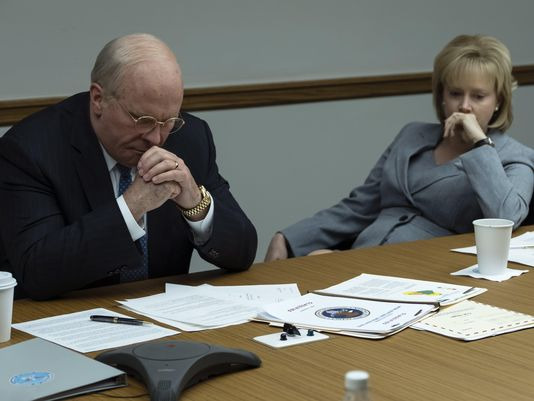
45. Vice (Adam McKay)- Vice is a difficult film to evaluate because its greatest strength, the resolute, partisan, experimental point of view, is also its greatest weakness, the hand-holding, pedantic, antic point of view. There are moments in this film--the menu scene, the fake-ending--that are more inventive than anything else this year. And credit to McKay for a sui generis structure that covers thirty years in the first hour and two years in the second hour; if nothing else, he has the talent to make unitary executive theory fun.
It's a big, angry, auteurist, '70s swing, so it also takes a lot of chances that don't work and, quite obviously, it wields poetic license in the way that Ron Burgundy swished around a glass of scotch. Sometimes it doesn't know when to trust the viewer, like when it freeze frames and flashes "George H.W. Bush, President, 1989-1993" over a Bush-looking guy talking about "Barbara and I" as his son misbehaves in the background. Through no fault of McKay's, the story feels anti-climactic as well. Although I felt more distance than I expected from events that I consider recent history, the dominoes are still falling in the world that Cheney shaped.
One thing that is less debatable is Christian Bale's transformation into Cheney. That word "transformation" is used any time a famous person wears a wig. This performance, which spans decades and is not directly related to any of Bale's other work, is different. The portrait of Cheney is one of monolithic evil, which Bale suggests, but it's also grounded in reticent, clenched jaw micro-movements. Cheney, who is four inches shorter than Bale, seems like the smallest and biggest man in any room. At this point, if you told me Bale was playing Grendel, I wouldn't bat an eye. In fact, his Grendel might look a lot like Dick Cheney.
2 notes
·
View notes
Text
The gorgeous "Call Me by Your Name" makes Sundance swoon
Thank God for the Italians. Four days into what had been feeling like a less-than-thrilling Sundance Film Festival – marred, of course, by real-world events – along came a film of such dizzying beauty and rich, genuine feeling that if I were to go home today, I would still call the whole festival a success. That film is Call Me by Your Name, an adaptation of the 2007 André Aciman novel that is something of a modern classic of gay literature. Directed by Italian dream weaver Luca Guadagnino (I Am Love, A Bigger Splash), the film is a swirling wonder, a film about coming of age, about the secrets of youth, the magic of summer, the beauty of Italy. As a steady and unrelenting snow descended on Park City, Call Me by Your Name kissed Sundance with light and warmth.
Which may sound a little purple, a little tumescent – but this movie inspires such sentiment. Guadagnino has created something of such texture, such power that it’s hard to talk about it in less than hyperbolic terms. First, I’ll tell you what it’s about. Timothée Chalamet, from Homeland and Miss Stevens, plays Elio, a smart, earnest, precocious kid living an odd and lovely kind of life in the summer of 1983. His parents – fabulously played by Amira Casar and Michael Stuhlbarg – are international academics, spending summers at a villa in Northern Italy that Elio’s mother inherited. Living in a (at least) trilingual household full of books and discussion about said books, Elio is intellectually beyond-his-years, a confident and curious kid who nonetheless feels woefully ignorant, or inexperienced, in one crucial field.
It’s summer, and Elio is 17, so obviously that field is love and sex. Elio is handsome, a beanpole topped with a thicket of dark curls, so he’s got the interest of some French girls staying nearby. He’s interested in them too, but is not pulled to them in the same way that he’s drawn inextricably to Oliver, the 20-something grad student boarding at Elio’s family’s house while he works with Elio’s father. Oliver is played by Armie Hammer, that Ken doll colossus who here uses his ludicrous proportions and chiseled handsomeness to great, surprisingly witty and sensitive effect. Elio’s attraction to Oliver – and Oliver’s to Elio – is laid out delicately by Guadagnino, who adapted Aciman’s book with Walter Fasano and none other than James Ivory (whose Maurice is nodded to throughout). The film’s pacing is fluid but helter-skelter, long and considered takes suddenly giving way to ecstatic short bursts.
Which is a pretty good approximation of the rhythms of memory, of adolescent desire, of summer’s intoxicating spell. Call Me by Your Name is narrative in that it tells the short, bittersweet story of Elio and Oliver, but it is more a terrarium of human experience, a sensory immersion that is remarkably full in its vision. Guadagnino fills every scene with life – people, insects, plants. Each shot is busy with existence, but Guadagnino does not overwhelm. Working with cinematographer Sayombhu Mukdeeprom, Guadagnino gives Call Me by Your Name the faded vibrancy of an old postcard, of a treasured memory. There’s a gentleness, a quietness tempering all the intense surges of feeling rippling between Elio and Oliver. It’s an exquisitely composed film, blessed by terrific performances and perfectly scored by a selection of classical compositions and a pair of new songs by Sufjan Stevens. (Yes, on top of everything else, there’s new Sufjan Stevens music too.)
There’s so much to gush about in this movie, and I’m sure many fans of the book, gay or otherwise, are dying to know whether the movie “goes there” in terms of one particular sexy scene. (It both does and doesn’t.) But in the interest of brevity, I’m just going to zero in on my favorite two things about the film. First is Chalamet’s performance. A 21-year-old La Guardia alum, Chalamet has the bearing of a natural; he’s deeply committed to his character but also infuses Elio with something of himself, too, as the best movie stars do. Chalamet seems to know that he’s got an innate charm, a boyish grace, and he uses that to striking effect. Elio, soulful and impetuous and a little bratty, is a kid you’ve known, a kid you wanted to be, a kid you care and root for. It’s a mature and thoughtful performance, and it augurs great things for Chalamet going forward. Hell, the tremendous extended final shot of the film would be an acting opus for someone twice or three times his age. Call Me by Your Name is not Chalamet’s first piece of work (watch Miss Stevens on Netflix), but it feels in every sense like a grand debut.
The other thing I really love about Guadagnino’s film is the way it captures something I might have a hard time explaining. It’s the film’s rendering of what it feels like to be a teenager living in many worlds at once. Meaning, we see Elio alert and interested when interacting with his parents and their friends – he’s a sophisticated kid who’s used to the company of grown-ups. But we know, of course, that something more primal is happening to Elio, something consuming and huge – the particular atomic weight of that one special summer I hope we all had – that he will not tell his parents about (not yet, anyway). So, Elio must act as if nothing is happening while everything is happening, a perhaps universal teenage balancing act, a dance between inner and outer lives, which is really hard to communicate on film. But Guadagnino and Chalamet figure it out, and Call Me by Your Name becomes a coming of age film – and absolutely a coming-out film – that replaces more familiar smarm and canned lesson-learning with something deeply sincere, kind, and perceptive.
That kindness, that sincerity, that wisdom is no better represented than in a monologue given by Stuhlbarg toward the end of the film. Stuhlbarg delivers it with such compassion, such humanity, and Guadagnino knows to film it in an unfussy way. In the scene, Elio’s father essentially offers his son a philosophy for living, stressing the importance of letting pain exist next to joy. It’s a remarkably comforting, empathetic, simple (and yet not simple at all) bit of insight, one we could all use. That Guadagnino essentially makes this the emotional climax of his film (not quite, but almost) indicates to me that Call Me by Your Name was made with real love, with good intentions, with a clarity of heart and purposeful, unpretentious intellect. That shows in every frame. Call Me by Your Name is a true stunner. It’s sexy and sad and funny. It’s Italy, it’s summer, it’s food, it’s family. It’s lust and shame and hope and resignation. It’s life, messy and brilliant.
RICHARD LAWSON | VANITY FAIR | 23 Jan 2017
#Call Me by Your Name#Guadagnino#timothee chalamet#armie hammer#andre aciman#james ivory#reviews#CMBYN#Elio#Oliver#Perlman#Chiamami col tuo nome
110 notes
·
View notes
Photo
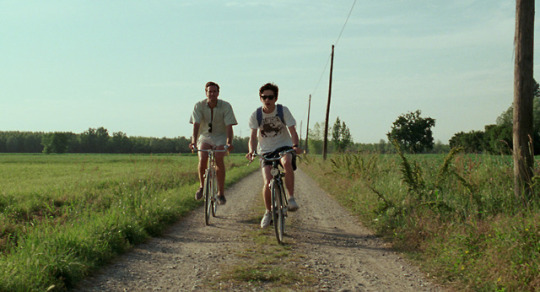
The Mystery of Love
(Review of ‘Call Me by Your Name’, seen in Nordisk Film Biografer Kennedy in Aalborg on the 5th of February 2018)
Love is a thing of beauty, but it’s also a thing of sorrow, of pain, of hopelessness. The same can be said about young adulthood. Probably for these reasons these themes are some of the most frequently portrayed in films. One of the latest examples of this is Luca Guadagnino’s Call Me by Your Name that has been widely praised and acknowledged for its touching and naturalistic story of young Elio who is facing the exact mix of emotions as mentioned earlier. Let’s be clear, Guadagnino has created an instant classic in the genre that managed to dodge all the obvious clichés and instead tell us a surprisingly fresh and heartfelt story.
Elio is seventeen years old and residing with his family in their summer residence somewhere in Northern Italy in the early 1980’s. From the first seconds in the house we feel how it breathes culture; the language switches between french, italian and english in a seemingly seemless manner and the topics of discussion are that of linguistics, fine arts and Elio’s music. Set against this high culture and very adult setting, Elio seems like the everyday teenager as he wanders through the abricot fields, flirts with his friend Marzia and swims in the lake with their friends. His world, however, is slowly turned upside down and he is sent on an internal journey of discovery when this summer’s American college graduate arrives to help his father with his work on Greco-Roman culture. A storyline that has been seen before in various contexts and variations. However, it is all the ingredients that Guadagnino puts together here that creates a memorable film that balances on the edge of being a masterpiece!
As young Elio, newcomer Timothée Chalamet is no less than a revelation. He potrays every aspect of Elio’s ever-changing and intense emotions with such finesse and conviction that its close to impossible not to be emotionally involved in all the ups and downs the character must endure. Chalamet seemingly does this with such ease that not only is his Academy Awards nomination fully deserved; he might also have deserved a win had it not been for mathematics of the Oscars matching Gary Oldman’s tremendous turn as Churchill with the often winning formula of “it’s his turn”. No matter what, Chalamet could easily deserve this recognition and if it will not happen this year, it seems bound to happen for him some time down the road in a not so distant future. The way he switches between boyish charm, rebellious teenage spirit, pure lust and ultimately devastating vulnerability is a joy to behold right until the very scene that underlines his tremendous performance in a surprisingly breathtaking and subtle way.
Opposite of Chalamet is Armie Hammer who gives an equally nuanced and emotionally powerful performance as the college graduate, Oliver, who seems in a confusing state as grave as that of the dear Elio. Age, relation, religion and the expectations from society causes havoc in his mind as he meets and develops his friendship with Elio. Hammer is perhaps most known for his performance in The Social Network and some rather unlucky Blockbuster turns, but here he positions himself as a fine actor, who manages to construct a believable character with many layers that me masterfully switches between.
The chemistry between Hammer and Chalamet and the constant clashes of their different confusions are the highlight of the film. Together they portray a love that has not been seen this naturalistic, believable and fragile on the big screen for a long time. As in last year’s Moonlight, the story here transcends itself in the sense that while it tells a detailed and specific story of homosexuality, it also manages to convey a more general story of the struggles of any love that might not be easy. That is not easy and its a huge testament both to the acting and the directing that it succeeds here.
In the supporting roles, it is in particular worth mentioning the always brilliant Michael Stuhlbarg as eccentric Mr. Pearlman (Elio’s father and Oliver’s boss), Amira Casar as Elio’s loving yet demanding mother, who in many ways embody the family’s focus on and fascination of high culture and, finally, Esther Garrel as Marzia; Elio’s friend with whom he explores different aspects of sexuality and love. She does not have a lot of screen time, but she adds a lot of power and emotion to Elio’s character in the scenes she is in.
The story is about emotions, youth, personal discovery and sorrow. But it is also a story of Italy and the American fascination of European culture. It is against the backdrop of the lush Italian nature that the Oliver (an embodiment of American culture) can finally set his feelings and desires free and the young, troubled teenager experiences all the things that bring him joy and happiness. Guadagnino manages to present northern Italy as a haven for the soul (admitted that’s not the most difficult of tasks) and it seems like the perfect backdrop for the equally heartwarming and -breaking story loosely based on the novel by André Aciman. The film is filled with symbols - often based on nature - and while some of them feel a bit forced, most of them are done with the same subtlety as the emotions of the characters, which make it simply delightful.
Everything fits together as the film’s 132 minute running time slowly goes by; the cinematography, the writing, the actors and the music that is a fitting mix of classic music and some new songs written and performed by Sufijan Stevens. Call Me by Your Name is something as rare as a “real” film in the sense that it feels naturalistic, realistic and not as constructed as the typical 2018 Hollywood production. Thank you for that, Luca Guadagnino! Later…
5/5
#Film#Film Review#Movie#Movie review#Oscars#Oscars 2018#Academy Awards#Call Me by Your Name#Luca Guadagnino#Timothée Chalamet#Armie Hammer#Michael Stuhlbarg#Amira Casar#Esther Garrel#André Aciman#Best Picture#Best Actor#Best Adapted Screenplay#Best Original Song
35 notes
·
View notes
Photo
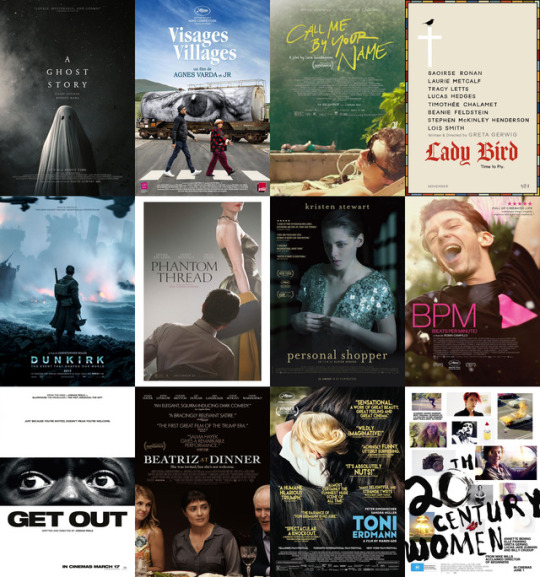
Film 2017: "Top 10″ (see also: Another Dozen)
Between MoviePass and film festivals (Seattle, Orcas Island, Telluride, and an absurd daytrip to Marin to see Call Me By Your Name at the Mill Valley Film Festival), I saw more movies in 2017 than any other year (somewhere around 140, including oldies and re-watches) and liked quite a few of them.
Convergences in the top ten:
Ghosts (3); France (4); crying in cars with moms (2); bloody noses (2), strangers in hostile settings (5), sexually-charged produce (2)
A Ghost Story opens with a bump in the night, but it isn’t a horror movie, unless you find the contradictorily vast and fleeting nature of time to be scary, which it absolutely is. One character ceases to be alive, yet lingers under an evocative sheet; a wife remains, grieves, consumes the better part of a pie in a single sitting. Time passes (and passes) and David Lowery captures its infuriating swells and contractions in a truly haunting cinematic meditation.
In Faces Places (Villages Visages) ninety-three-year-old Agnes Varda and thirty-something photographer J.R. travel to small French towns to take and install extremely large pictures onto unconventional surfaces. Her eyesight is failing; he refuses to take off his sunglasses. Between their effervescent charm and the moving effect that being seen has on the people of the photos, I had tears in my eyes during most of the film’s running time. An utter delight.
Call Me By Your Name’s gift to those of us with more mundane lives is how sensuously it conveys the feeling of a being a exceptionally bright-yet-bored teenager in Italy, all those dull summer afternoons stretched endlessly ahead, until suddenly you’ve fallen in love with Armie Hammer and those endless days are disappearing all-too quickly. Luca Guadagnino works here is fully naturalistic mode, languid camerawork, softly-shifting focus, letting the bike rides, swims, and meaningful glances speak volumes and the impeccable soundtrack (with songs echoing) picks up the rest. Timothée Chalamet’s performance -- rangy curiosity, restrained vulnerability, eager determination -- is one for the ages. Elio, Elio, Elio.
Following the conventional rhythms of a senior year in high school, we see Saorise Ronan’s Lady Bird as she falls in love with a theater geek, a nihilistic dirtbag in a band, her mother, the city of Sacramento, and eventually herself. Where lesser, lazier filmmakers might allow a focus on the lead to crowd everyone else out, Greta Gerwig demonstrates exceptional humanity in allowing every supporting character to be absolutely essential with three dimensional stories of their own. Each of them could’ve sustained their own spotlight, but their intersection with Lady Bird form a rich tapestry of class and geography, family, friendship, and the life-changing power of acknowledging your love of an objectively terrible Dave Matthews Band song.
I can’t believe how the summer’s greatest and most expensive spectacle, Dunkirk, seems to have completely disappeared from the year-end awards conversation. Christopher Nolan gets to indulge his fondness for clockwork shenanigans, depicting the unlikely rescue of all those sad doomed Brits from that treacherous beach, from three perspectives: the land (sorry, the Mole), sea, and air. There’s very little dialogue; we barely see the Nazis; and there’s no helpful voiceover to refresh you on forgotten history lessons. Yet, with great storytelling economy and absolutely dazzling cinematography, the disjointed timeframes induce a sense of the confused desperation, an utterly harrowing sense of looming death, and the ever slim prospects for escape. Despite being told with a cool interiority and a restrained chin-up sense of duty, noticing the first hints how the three timeframes intersected were among the year’s most thrilling, the IMAX images among the most indelible, and those little boats finally arriving over the horizon seemingly moments before Tom Hardy valiantly glides that plane down onto the beach of certain doom to be among the most moving.
Had I seen Phantom Thread even slightly earlier in the year, it might’ve been my only number one (instead of in this artificial six-way tie for a top five). I’ve seen it twice in two weeks and feel like I could watch it forever. Of course, there’s the bravura acting -- Daniel Day Lewis, fussy, controlling, and comedic; Vicky Krieps, clever and constantly adjusting; and Lesley Manville’s placid omniscience -- in an ever-uncertain power dynamic that’s elegantly orchestrated by Jonny Greenwood’s tremendously insightful score. But it’s also how funny the film is throughout (where are my Woodcock GIFs) and genuinely touching it becomes and how surprisingly delightful the late twists pay off. Much has been said about how much Timothée Chalamet accomplishes with just his face in those magnificent closing minutes of Call Me By Your Name; a close runner-up is what Vicky Krieps and Daniel Day Lewis accomplish over a fateful dinner scene.
--
Rounding out the list: perpetual favorite Olivier Assayas’s Personal Shopper (the third, most menacing ghost story on the list, Kristin Stewart’s restrained affect perfectly suited to a bored and grieving medium/celebrity assistant, complete with an unsettlingly suspenseful sequence conducted entirely by oddly-punctuated text messages); BPM (effectively intertwining a vital AIDS-era love story into a ground-level behind-the-scenes account of the talky and evocative activism of ACT-UP Paris); Get Out (on first viewing: a comedy of too-real awkwardness of white liberalism turned all-the-way up to an absurdly scary premise; seen again: a horror documentary); Beatriz at Dinner covers similar territory as Get Out (Salma Hayek’s wholistic healer, entirely out of her element at a wealthy client’s business dinner with a devil developer) but with the limits of kindness and the futility of action portrayed in devastating fashion -- and with crushing application to our present political nightmare -- by Mike White and Miguel Arteta.
And, as “honorable mentions”, two 2016 films that I didn’t see until 2017: Toni Erdmann, the longest and most uproariously funny comedy about family and globalism I saw all year (the idea of the impending Nicholson-Wiig remake deeply offends me already) and watching 20th Century Women in the winter felt like having a thousand emotionally electrified felting needles applied to a heart that you’d forgotten was even there. I don’t know if anyone captures the sense of the past, present, and future colliding and occurring in a kaleidoscopic collage better than Mike Mills. It’s dumb how quickly this movie came and went and how Annette Bening didn’t even get an Oscar nomination (let alone a win).
#2017 annual report#best of 2017#film#movies#call me by your name#dunkirk#faces places#lady bird#a ghost story#phantom thread#beats per minute#bpm#personal shopper#get out#beatriz at dinner#20th century women#toni erdmann
27 notes
·
View notes
Text
Review: Call Me by Your Name (Guadagnino, 2017)
“Is it better to speak or to die?”
If heaven were a place on this earth, I'm sure it would be the Italian villa where the Perlmans spend the summer. The vine-covered brick walls. The endless orchards of eternally ripe fruits. The huge, beautiful old house where you can spend your days transcribing music and reading books and eating delicious food and drinking delicious wine. The days bleed into each other in a sun-drenched haze. We're told at the beginning of the film that it's the summer of 1983, but the year is more or less unimportant here.
This is an incredibly warm film. Mr. and Mrs. Perlman are generous people who host dinner guests on what seems like a daily basis. Every summer, they rent out a room in their house to a promising young academic as they are given a rare chance at a season of elysian relaxation as they work on a book or dissertation. The kindness that radiates off the Perlmans is matched by their passion: the conversation is always on the arts, whether it's literature, music, cinema, sculpture, language. This seems to be a passion shared by director Luca Guadagnino (whose previous efforts include the sumptuous I Am Love). I found myself wanting to live in this film, to float through the days devoting myself to nothing but art and the people around me. It's funny too--a broadly characterized Italian couple gets a series of healthy laughs in a brief scene, but there are smaller moments that earn a chuckle too.
Whereas other recent queer films like Carol and Moonlight seek to expressly subvert, politicize, and humanize marginalized stories in the LGBTQ+ community, Call Me by Your Name is surprisingly apolitical. As the swell of first love comes, it comes without societal pressure to ignore it. Living in this fantasyland in the northern Italian countryside, the two lovers--Elio, the younger, and Oliver, the older--find themselves free to explore their sexuality. The only danger lies in the inevitable heartbreak that lies ahead. This film also differs significantly from the aforementioned ones by containing much, much more sex. There's hardly any nudity, but the sex happens, and happens often, and happens in many forms. Sometimes it's not just Elio and Oliver physically having sex--sometimes Elio is having sex with Marzia, a girl in town, sometimes they're seducing each other with subtext, and sometimes Elio brings an added meaning to the peach emoji. It's an unabashedly sexual film.
Elio, Elio, Elio. I'm going to be thinking about Timothée Chalamet's performance for a long time. His smarmy-ass character in Lady Bird does a wildly inadequate job at preparing you for his work here. It's got to rank as one of the most remarkably lived-in performances I've ever seen. Every second rings wholly and painfully true. He creates magic out of the mundane. His longing, his loneliness, his pain is all there (in three languages), even when he doesn't want us to see it. Without spoiling anything, the final shot is one of the most mesmerizing pieces of wordless acting I've seen...maybe ever? And it's all Chalamet's doing. It's impossible to imagine this film in the hands of any other actor. There was a time in the film I got temporarily distracted because he reminded me of Montgomery Clift, but then I got sad thinking about Clift's own life and career and sexuality, and I snapped back into the film. Make no mistake: Chalamet delivers the best performance of the year, of any gender, in any category.
The supporting players are all excellent as well. Armie Hammer exudes classic movie star charm while expertly conveying pages and pages of unspoken feelings. Amira Casar does wonders with the rather thankless role of Mrs. Perlman. Michael Stuhlbarg, however, is the second best in show as Mr. Perlman. His much buzzed Big Scene at the end is utterly magical.
James Ivory's script does an exceptional job at bring André Aciman's novel to life. While the film juggles with a whole lot of big ideas--not least of them being Elio and Oliver's intersectional identity as bisexual Jewish men--it finds its heart in the universal. That excitement in first love. The devastation at its end. This is a supremely moving film, one of extraordinary beauty. May all your heartbreak be accompanied by Sufjan Stevens songs.
#some small spoilers here#call me by your name#luca guadagnino#timothee chalamet#michael stuhlbarg#armie hammer#amira casar#james ivory#film reviews#sometimes elliott watches movies
27 notes
·
View notes